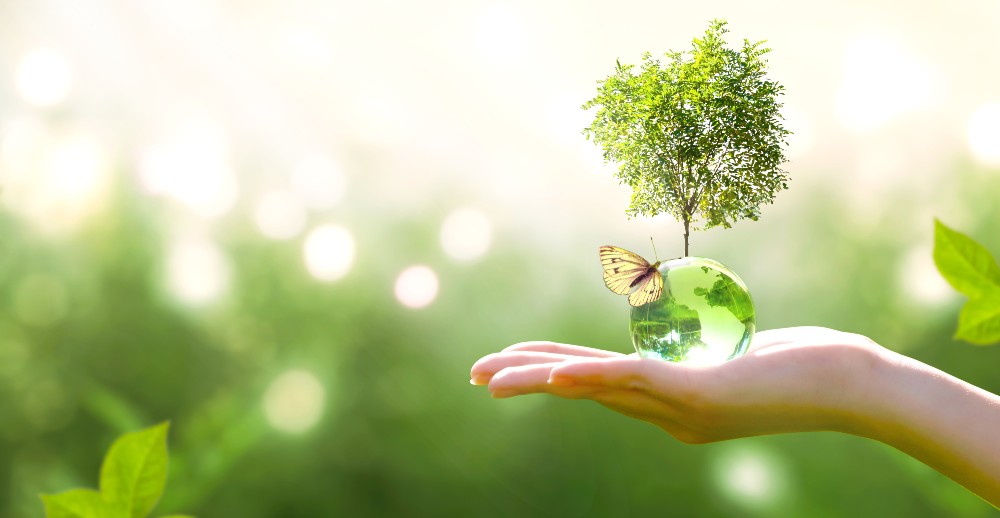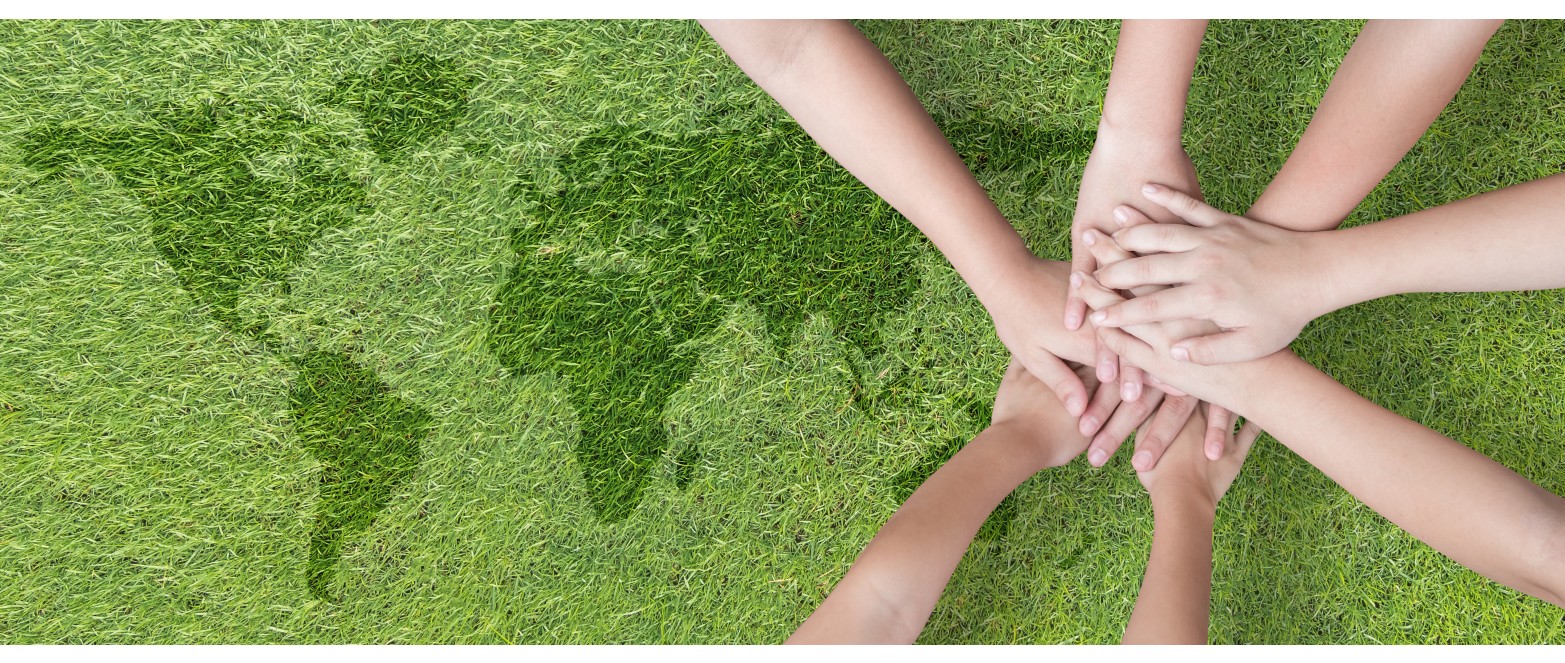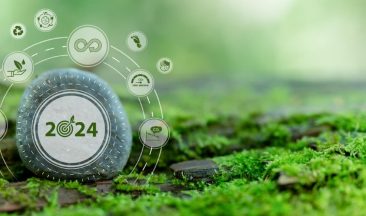ICL is determined to do the right thing, both for humanity and our planet, by continuously creating a positive impact and reaching the goals we set for ourselves. We achieve these ambitious targets by relying on our unique set of technological skills and ingenuity that we apply to industrial efficiency, green innovation, circular economy, and responsible usage of natural resources. Sustainability has become part of our core business and is an innovation driver. Our mission to create a sustainable future begins with a company-wide commitment to becoming a carbon-free organization. We are entirely committed to reaching net-zero carbon by 2050!
What is Sustainability and Why is it So Important?
We live in a world with an increasing population, a changing climate, and an ever-growing consumer appetite for resources. Until the early 1990s, concern for the environment was largely a fringe movement or was limited to specific local issues. During that decade, the wider philosophy of environmentalism morphed into a mainstream social value. The public embrace of environmentalism is now evolving into a vast realization that sustainability is one of the main keys to a stable, thriving, and safe world.
Sustainability, in the broadest sense, is the concept of using data and technology to harvest natural resources and process them in an eco-friendly way. In a circular economy, the goal is to never exhaust resources but to create a working model of transformation, reuse, or recycling. Any environmental damage caused by the exploitation or use of resources is either minimized or ended.
Sustainability is a holistic model that is scalable and adaptable and exists symbiotically with economic growth and entrepreneurism. Properly applied, sustainability is a dynamic and constantly evolving process that creates new markets and generates opportunities for start-ups and new ventures. The challenges and new technologies of corporate sustainability offer clear financial rewards for innovation and ingenuity.
The Importance of Corporate Sustainability
Corporate social responsibility and ethical business practices are concepts that often receive a common-place mention in company mission statements or About Us pages. Until now, the concepts of corporate social responsibility have been vague. Even within a single company, they can mean many different things to different people. As the concept of corporate sustainability becomes better understood, it’s likely to become one of the fundamental ethical and economic driving forces for successful businesses.
In an age of universal social media and viral news, individual corporations are immediately monitored to a wider global audience. Companies that cannot meet public expectations for corporate sustainability may find themselves at a competitive disadvantage. Companies that do embrace the concept may be better placed to bid for contracts, by virtue of their corporate sustainability initiatives.
In areas where natural resources are limited, or profit margins are narrow, companies that understand the importance of corporate sustainability will be better placed to secure longer-term profits. In industries of vital importance, like the production of food staples, the benefits of corporate sustainability are almost universal. For example, crop yields and crop health can be improved; environmental damage, waste, and production costs can be reduced.
ICL´s Commitment to Sustainability
ICL is a leading global specialty minerals company that creates impactful solutions in the global food, agriculture, and industrial markets, and we stay continually committed to making an impact and advancing humanity for a sustainable future.
Our commitment to corporate sustainability is entirely holistic and proactive. The internal concept of sustainability has evolved to the point where it is effectively written into the company’s DNA. It is now a guiding principle that covers every aspect of ICL’s ongoing operations, new ventures, and strategic planning.
Corporate sustainability initiatives are proving to be a passport to new markets and are winning the trust, enthusiasm, and loyalty of clients across the world. The concept of sustainability is striking a chord with a new generation of technologies including AgTech. AgTech or agrotechnology aims at improving efficiency in food production and crop yields and is significantly evolving the use of corporate sustainability. Creating a positive impact is our promise to humanity. As success and sustainability go hand in hand, sustainability has become part of our core business and innovation driver for us.

You may be interested in:
What is sustainability? what are SDGs?
Top 10 Agriculture Trends to Watch in 2024
What is vertical farming
ICL’s Sustainability Vision
ICL’s Sustainability vision is the product of years of experience as an agriculture industry leader, AgTech pioneer, and innovator in fields as diverse as the manufacture of industrial products, advanced fertilizers, and raw mineral extraction. This practical experience and expertise allow us to identify action areas and set clearly defined goals. These goals are always ambitious but are carefully calculated and gauged as achievable. There are currently three major strategic dates on our sustainability vision timeline: 2030, 2040 and 2050.
2030: ICL´s Milestones for Sustainability
2030 is a milestone date for the implementation of various corporate sustainability initiatives that will directly reduce ICL’s impact on the global environment while improving its relationships with employees and local communities. These goals cover four main pillars that encompass all the main components of any business endeavor. None can exist independently of the others and all illustrate the vital importance of corporate sustainability.
2040: ICL´s Milestones for Sustainability
2040 is a milestone date for ICL to increase its share of renewable energy consumption to 50%. We see 2040 as a pivotal year when we will have overcome the major challenges and will be clearly within sight of our final goal of being entirely carbon neutral. For a major company to transform its global operations and achieve 50% renewable energy consumption in a little less than two decades is a massive strategic goal – but we are already well on the way, and are confident that 2040 will be a year of unrivaled achievement.
2050: ICL´s Milestones for Sustainability
2050 is the target date for ICL to reach net-zero carbon and become entirely carbon neutral. Carbon neutrality refers to achieving zero carbon dioxide emissions. This can be done by balancing emissions of carbon dioxide with its removal or by eliminating emissions from society. It should be emphasized that this is a provisional date, based on current technological capabilities and the global ecosystem. The underlying aim is for ICL to be the # 1 eco-friendly company in the industry. This is a concrete and incontrovertible goal that will be achieved.
The Route Map to 2050
ICL’s top 4 corporate sustainability initiatives
1. Our Environment
- Reduce fresh water consumption in water stress regions by 10%. We will further increase circular economy and water-saving impact by an additional 3% of wastewater recycling.
- Absolute GHG emissions Scope 1,2, reduction of 30% by 2030 to become carbon neutral by 2050. This is an ambitious target, but we strongly believe it to be achievable and have a clear and structured model. We are already making firm progress as we rely on our unique set of technological skills and ingenuity, and we are committed to reaching net-zero carbon by 2050.
- Increase the share of renewable energy consumption to 50% by 2040 This figure is calculated on existing technological models.
- Increase the circular economy & water savings by an additional 3%This goal focuses on the re-use of waste streams in MT.
- Further investment in renewable resources. These include wood fiber for growing media and reducing the usage of peat (partially decayed vegetation or organic matter).
2. Our People
- We actively encourage ICL employees to volunteer for worthwhile projects and aim to increase these activities by 10% relative to the 2019 base rate. Promoting personal environmental responsibility & employees volunteering is one of ICL’s core philosophies and a key to building a sustainability vision and culture throughout the company.
3. Our Communities
- ICL is actively supporting community initiatives by Contributing 1% of income (before tax).
- As part of the wider process of employee education and development, we are promoting personal environmental responsibility among our employees.
4. Our Products
- Introduce a viable circular economy into bromine, phosphate, and potash chains.
- Establish a new business unit at ICL Rotem in Israel. Its purpose will be to examine the plant’s byproducts and create innovative environmentally sound solutions for fluorine, silica (silicon dioxide), sulfur, calcium carbonate, and calcium sulfate.
- Develop alternative proteins and make mass production economically viable. The goal is to reduce meat consumption without compromising on the taste, texture, and culinary experience of each food product. By putting affordable alternative proteins on the shelves, we intend to optimize the use of agricultural land and reduce the carbon footprint of the farming industry.
- Polystyrene recycling begins with waste insulation materials from the construction industry.
- Phosphate recycling from waste fertilizers, turning potentially damaging nitrate waste back into valuable crop nutrients.
Commitment to UN’s Sustainable Development Goals
ICL is closely committed to implementing the UN’s 17 Sustainable Development Goals. These goals establish a clear global framework for tackling some of the most serious problems that are currently afflicting the human race. ICL has a key role to play in the second SDG: Zero Hunger. Our innovations in AgTech and sustainable agriculture and our ability to deliver effective localized solutions have the potential to transform the way we produce food.
ICL’s successful application of AI as a tool for scanning big data gives agronomists and farmers the ability to access otherwise inaccessible knowledge and then use other proprietary software to create tailored farming solutions. These include advanced fertilizer solutions, irrigation pH optimization, and opportunities to network and collaborate with peers and small-medium enterprises (SMEs) around the world.
Climate change is a reality, although the underlying causes are very much a subject of scientific debate. Predictive models still involve a high level of guesswork and current solutions to the challenges of changing weather patterns (and freak weather events) tend to be reactive rather than proactive. ICL’s technological innovations allow fast localized adaptation to either actual or anticipated change. They also encourage a mindset that actively seeks out new sustainable approaches to crop planting and food production.
The ability to optimize irrigation and fertilizer solutions helps to make the farming of marginal land economically viable. It also allows the reclamation of wasteland and makes sophisticated urban farming a viable reality. Sustainable agriculture is scalable and the core principles and technologies are as relevant to an organic family smallholding as they are to an industrialized agricultural estate.
ICL research and development into alternative proteins is another innovation with exciting implications for Zero Hunger. Zero Hunger is the ending of hunger worldwide and is one of the UN’s 17 Sustainable Development Goals (SDG’s). The production of animal proteins is coming under increasing public scrutiny and generating a range of ethical concerns. These issues relate to the use of agricultural land to grow animal feed, the carbon footprint caused by billions of livestock, and the effects on human health of processed meat and dairy consumption. If or when it becomes economically viable to mass-produce healthy, and appetizing alternative proteins in a sustainable manner, we will see a revolution in food production.
ICL isn’t simply committed to corporate sustainability initiatives. The company is driven by a sustainability vision that is at the cusp of a corporate revolution. The successful implementation of our sustainability vision has gained our inclusion in the FTSE’s index for strong ESG (Environment, Social and Corporate Governance) practices and earned recognition in the Bloomberg ESG rating with a top score of 68 among global fertilizer companies. We are continuing to invest in research and development across every field and lead the way in promoting the concept of corporate sustainability.







